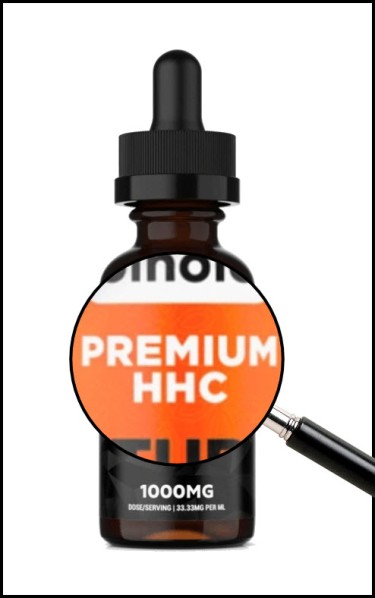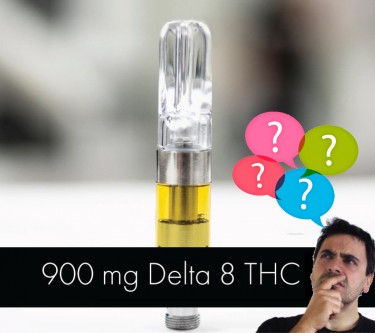
What is THC-O and how is it made?
As a cannabis enthusiast, when you learn about THC-O – a cannabinoid three times stronger than THC, your first reaction may be shock, happiness, or confusion. In fact, you might even consider it a blessing. But whatever the case, it’s important to educate the general public about the borderline psychedelic and cosmically potent THC-O.
THC-O is also a derivative of cannabis and is said to be 300% stronger than the most astronomical THC. Inquisitive stoners, this is not the time to be careful when experimenting with THC-O. There is no doubt that THC-O is available online, but whether or not it is safe for consumption is still a matter of debate. While THC-O could be the holy grail for college stoners due to its high potency, several people are trying to understand its medicinal properties. Just to believe that its medicinal properties will be just as powerful.
In search of the root of this relatively unique cannabinoid, we will look at how THC-O is obtained and how safe it is or not for consumers. Especially for consumers who have to take medication with something stronger than the usual pharmacy rate.
What is THC-O?
THC-O or THC-O-acetate is a synthetic derivative (simply put, chemical twin) of THC. This means that while THC-O is actually a cannabinoid, it does not occur naturally. THC-O is made through a chemical process using modern cannabis technology and a toxic chemical called acetic anhydride. The overall process converts 9 THC into THC-O-acetate.
In order to produce THC-O, a series of extractions must first be performed. First and foremost is the extraction of cannabidiol from less than 0.3% THC hemp. Next up is the extraction of Delta-8-THC from the CBD that was extracted first. Finally, the organic solvent acetic anhydride is introduced into the Delta-8. THC molecules. This helps remove all flavonoids and terpenes, leaving behind an odorless, tasteless, and oil-thick THC isolate with polarizing potency.
Currently, data, regulations, and research on THC-O-acetate and its effects are minimal. However, researchers have concluded that THC-O is a prodrug. That means it has to be metabolized before it is activated. THC-O is metabolized immediately, what remains is a variation of Delta-9-THC that is absorbed and transported by the body. Scientists speculated that the increase in potency was due to its bioavailability.
Is THC-O Legal?
Currently, THC-O is considered legal because it is made from federally legal hemp. The fact that it doesn’t contain Delta-9 THC also makes it legal for use.
The truth, however, is that THC-O’s chemical makeup and potency point to an uncertain future. Although THC-O is made from hemp, it could be classified as a List I drug (marijuana) under the Federal Analogue Act 1986. Provided its source can be traced back to federally legal hemp, THC-O will continue to exist in a gray area. This will allow THC-O to easily fall under the oversight radar for the time being.
That being said, there are currently several reputable hemp brands offering their THC-O products for online purchase. Even if the potency of THC-O can arouse the curiosity of stoners about recreational use, caution is still advised. Since THC-O is not a naturally occurring cannabinoid, there are concerns about its very volatile manufacturing process.
How Safe is THC-O?
At the moment it is difficult to give an unequivocal answer. In the past, the market has seen some synthetic versions of THC. For example, K2 and Spice were popular synthetic cannabinoids in the early 2000s, but they were completely different from naturally occurring cannabinoids. As a result, the use of synthetic cannabinoids drove many to be cautious. But unlike Spice and K2, THC-O has some chemical similarities to Delta-9-THC and Delta-8-THC. They are all made from cannabis, as opposed to the synthetic cannabinoids that were made in the 2000s.
However, most of the information advises against smoking THC-O as a whole. This is because THC-O is considered a prodrug – a chemical that needs to be metabolized before it can take effect. On the other hand, anecdotal data suggests that THC-O has significant therapeutic potential when used in place of an edible tincture. This is good news for cannabis patients, and it is a response to the challenge of ever-increasing levels of THC tolerances in patients during chronic pain management. THC-O products could help improve patient lifestyle in a more elegant way than the usual recreational doses.
Currently, there is no data to suggest that THC-O is particularly dangerous. On the other hand, there is no evidence that THC-O is particularly safe. So if you are experimenting with THC-O, do so with caution.
Who is THC-O suitable for?
There are several cannabis patients who struggle with chronic illness while in severe pain. THC-O is best for these people. Many cannabis patients consume high doses of THC every day to treat their condition. Imagine how well many cannabis patients would come off given the potency of THC-O. Patients with debilitating, debilitating, and debilitating illnesses can use THC-O as cannabis therapy to help them survive just one more day.
Whether THC-O is a panacea for cannabis patients with extreme tolerance is still controversial. However, one thing that we cannot deny is the existence of patients using extreme doses of THC to manage their ailments. We believe that THC-O is best suited for these patients to manage their ailments with its potency in mind.
What’s the best way to consume THC-O?
It is difficult to give a definitive answer as there is little knowledge about the metabolic processing of THC-O. However, some studies have suggested that THC-O is converted to Delta-9 in the liver when taken orally. But the authenticity of this research has not been proven. Even if people are not ready to take such risks and therefore decide to vape. That way you are sure of what you are getting.
Bottom line
While data on THC-O may be limited at the moment, companies are looking for new ways to use this new cannabinoid. There will definitely be new research and we will better understand its effectiveness, ideal uses, and safety. Until then, we must all be careful about THC-O-acetate.
THE NEW CANNABINOIDS ARE COMING TO THE MARKET, READ THIS ..

WHAT IS HHC AND DOES IT MAKE YOU HIGH? CLICK HERE!
OR..

WHAT IS DELTA-8 THC AND IS IT LEGAL OR NOT? READ THIS.

Post a comment: